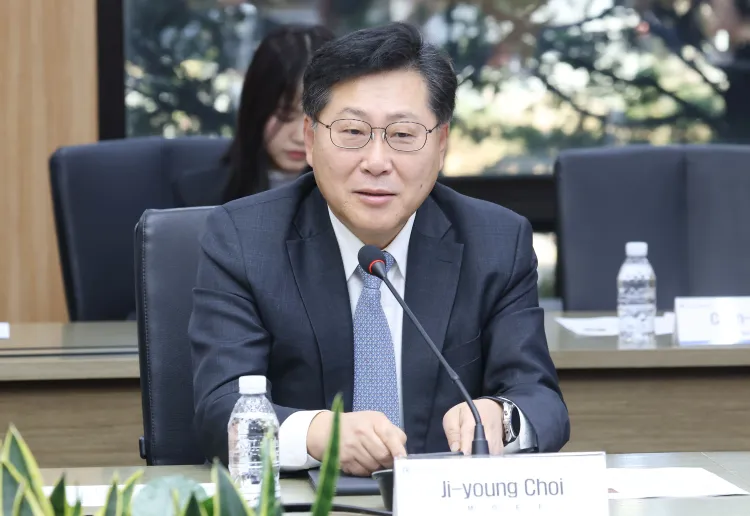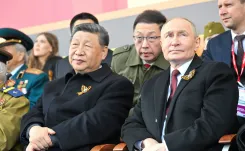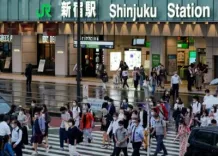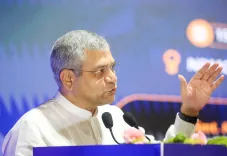What Global Financial Issues Did South Korea and Japan Discuss?

Synopsis
Key Takeaways
- South Korea and Japan met to address global financial challenges.
- Officials emphasized the importance of multilateral cooperation.
- They are preparing for an upcoming finance ministers' meeting in Tokyo.
- Both nations aim to maintain stable relations despite political changes.
- Seoul's decision to boycott Japan's ceremony highlights ongoing tensions.
Seoul, Sep 15 (NationPress) - South Korea and Japan convened a vice ministerial-level meeting of finance officials in Seoul on Monday to address global financial challenges, as stated by Seoul's finance ministry.
Choi Ji-young, the deputy minister for international affairs at South Korea's Ministry of Economy and Finance, met with his Japanese counterpart, Atsushi Mimura, at the government complex in Seoul. Their discussions focused on critical issues impacting the global economy and financial markets, according to the ministry.
The officials exchanged insights on ongoing matters being deliberated on multilateral platforms, including the Asia-Pacific Economic Cooperation (APEC), the Group of Twenty (G20), and the Association of Southeast Asian Nations (ASEAN), as reported by Yonhap News Agency.
The ministry also indicated that they held consultations in preparation for the upcoming 10th Korea-Japan finance ministers' meeting scheduled to take place in Tokyo.
“Financial authorities from both nations will persist in their cooperation, not just at the senior official level but also at the working level,” the ministry noted.
On September 8, the South Korean presidential office expressed optimism for maintaining positive relations with Tokyo following Japanese Prime Minister Shigeru Ishiba's announcement of resignation due to an electoral setback.
South Korea and Japan “have forged a wide consensus on establishing future-oriented and stable relations,” according to a senior official at the presidential office.
“We anticipate that the two nations will uphold positive relations even in the aftermath of Ishiba's resignation,” the official added.
The presidential office has been carefully observing the developments surrounding Ishiba's resignation but has opted to withhold comments on Japan's internal politics.
South Korean President Lee Jae Myung visited Tokyo in late August for his second meeting with Ishiba, where they agreed to enhance cooperation.
However, tensions persist as Seoul recently announced a boycott of Japan's forthcoming ceremony linked to the Sado mine, which is associated with the wartime forced labor of Koreans, citing Tokyo's lack of sincerity in honoring the victims.








